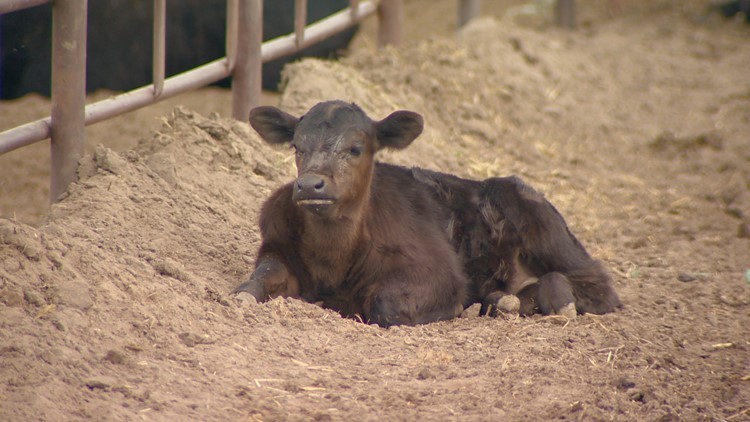
The agency will take comments until Oct. 5 on mandatory radio-frequency identification, commonly known as RFID, according to a notice Monday in the Federal Register.
RFID tags and electronic records are an upgrade over visual tags and paper files, enabling state veterinarians to more quickly retrace a sick animal’s movements, the USDA argues.
The agency withdrew the same proposal in 2019, partly because segments of the cattle industry complained the electronic tags are expensive, intrusive and unproven.
R-CALF CEO Bill Bullard, whose ranchers’ organization sued last year to stop the mandate, said Monday he wasn’t surprised that USDA resurrected the proposal.
“We’ve never doubted their absolute quest to force this upon the industry, whether it’s needed or not,” he said.
The USDA currently allows cattle and bison with metal tags or radio tags to enter interstate commerce. The agency asserts that electronic tags are better in a crisis, however.
Metal tags can be wrongly transcribed by inspectors and paper records can take time to search, according to the agency.
“RFID tags and electronic record systems provide significant advantage over metal tags to rapidly and accurately read and retrieve traceability information,” according to the USDA’s Animal and Plant Health Inspection Service.
The USDA proposes to make RFID tags mandatory effective Jan. 1, 2023, for cattle and bison older than 18 months. The USDA would grandfather in metal tags put on cattle and bison before that date.
Cattlemen want to know who’s going to pay for the electronic system, said Ethan Lane, vice president of government affairs for the National Cattlemen’s Beef Association.
“The main concern for the producer is whether it’s my buck or somebody else’s buck,” he said.
Cattlemen are also concerned about whether the records collected from their operations will be kept confidential, Lane said.
“There are a lot of questions to be answered here,” he said. “We’re glad to see something in writing, so our producers can weigh in on that process and make their opinions known.”
R-CALF supports ranchers who voluntarily embrace RFID tags, but adamantly opposes requiring them. Its suit last year responded to a USDA “fact sheet” outlining plans to mandate radio tags.
At the USDA’s request, a federal judge in Wyoming in February dismissed the lawsuit. The judge agreed with the USDA that the suit was pointless because the “fact sheet” no longer represented the agency’s policy.
R-CALF did not let the lawsuit go. It filed a new complaint in April, alleging the USDA continued to harbor plans to force ranchers to use radio tags.
“This agency is dead-set on controlling independent cattle ranchers, and this is their chief tool,” Bullard said.
The USDA says withdrawing the fact sheet complied with President Trump’s orders barring federal agencies from proclaiming rules without taking public comments.
Lane said the USDA appears determined to mandate RFID tags, but has given producers a chance to influence the details. “Certainly, there’s a message to be received there,” he said.
























